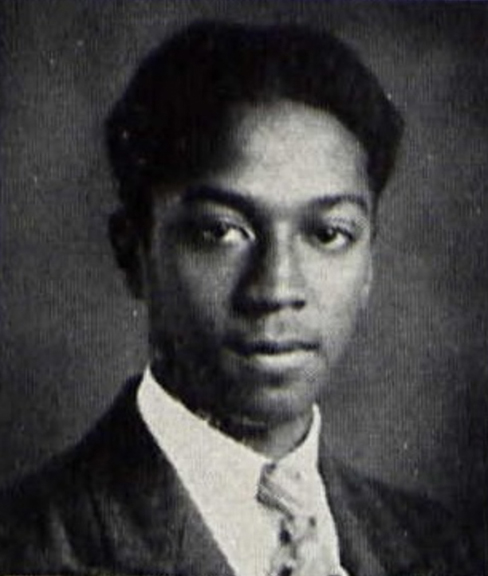
Dorchester Illustration 2601 Reed Edwin Peggram
Doctor Ethelene Whitmire, from the University of Wisconsin, has brought to our attention some information about a Dorchester resident, Reed Edwin Peggram.
Previously unknown to us, Peggram’s grandmother worked in the kitchen of the William Clapp House during the period 1900 to 1930, and Frank Clapp wrote a letter of recommendation for Reed Peggram’s application to enter Harvard College. One of the Internet entries about Peggram is titled “The Gay Black American Who Stared Down Nazis in the Name of Love.” It can be found at this link:
Reed Edwin Peggram was born in Dorchester on July 26, 1914, and died here on April 20, 1982. He was an American scholar, translator, and teacher of linguistics. He is also known for his survival of Nazi imprisonment during World War II.
Reed’s parents came to Dorchester from Virginia. Peggram’s mother was a housewife, and after World War I, his father, was sent to a hospital in Virginia for long term recovery after an injury from his military service in the war. His parents divorced, and Reed’s mother married a man with the last name Farrar. The couple moved to New Jersey. Reed remained in Dorchester under the care are of his grandmother, Mrs. Laura Reed, who worked as a school custodian and as day help for private families.
Although neither of his parents graduated from college, Peggram was a successful scholar. He attended the Boston Latin School, graduating in 1931. His main interests were in literature, languages, and dramatics. During his time in school, he also enjoyed participating in track, in Dramatic Club, and in tutoring French and Latin. He earned honors in many of his courses, including Elementary Latin, French, and German as well as Advanced Latin, and he received several awards.
Reed attended Harvard College from 1931 to 1935, graduating magna cum laude with his Bachelor of Arts in Romance languages and literature in the department of Romance philology. Peggram received his master’s degree in comparative literature from Harvard University in 1936. He was a a Graduate Residence Fellow in comparative literature at Columbia University from 1936 to 1937, returning to Harvard in1937 to pursue his PhD in comparative literature.
In 1938, Peggram received the John Harvard Fellowship in 1938 and the Julius Rosenwald Fellowship to study abroad at the University of Paris. While in Paris, he met Gerdh Hauptmann of Copenhagen, Denmark, another scholar who studied fine arts and painting. Reed and Gerdh went together in 1939 to study at the University of Copenhagen
Peggram and Hauptmann formed a strong relationship and wanted to leave for America together. Unfortunately, these plans were delayed first by financial limitations and later by the German occupation of Denmark. Peggram and Hauptmann fled to France and eventually settled in Italy.
The two men were captured in 1941 by Nazis and imprisoned in the Bagni Di Lucca concentration camp near Pistola, Italy. During this time, Peggram had the chance to return to the United States, and Hauptmann was offered work under German occupation. Yet, both men refused these opportunities, as they were not willing to separate from one another, resulting in death sentences and imprisonment. They spent two years in German and Italian concentration camps, during which military personnel confiscated their documentation papers. Eventually, both Peggram and Hauptmann escaped prison, facing harsh conditions and machine gun fire along their journey. The pair found safety with the 92nd Infantry Division in Italy. Unfortunately, because neither of them had their identification documents, Peggram and Hauptmann were delayed in relocating. Their time in Nazi imprisonment left both men to suffer from nervous breakdowns and mental health problems. After his freedom, Peggram received four years of treatment for his mental health issues.
After seven years abroad, Peggram travelled back to the United States to work as a translator and a teacher. Living in his home town of Dorchester in Boston, Massachusetts, he spent his time working, expanding his language skills, and singing in Episcopal Church choirs Peggram never married and was childless. However, several personal letters to his Harvard colleague, Leonard Bernstein, and private accounts indicate he was homosexual and likely had a romantic relationship with Gerdh Hauptmann during their time together.
Reed Edwin Peggram died on April 20, 1982, in Dorchester, Massachusetts, at the age of 67. He was retired at the time of his death.
